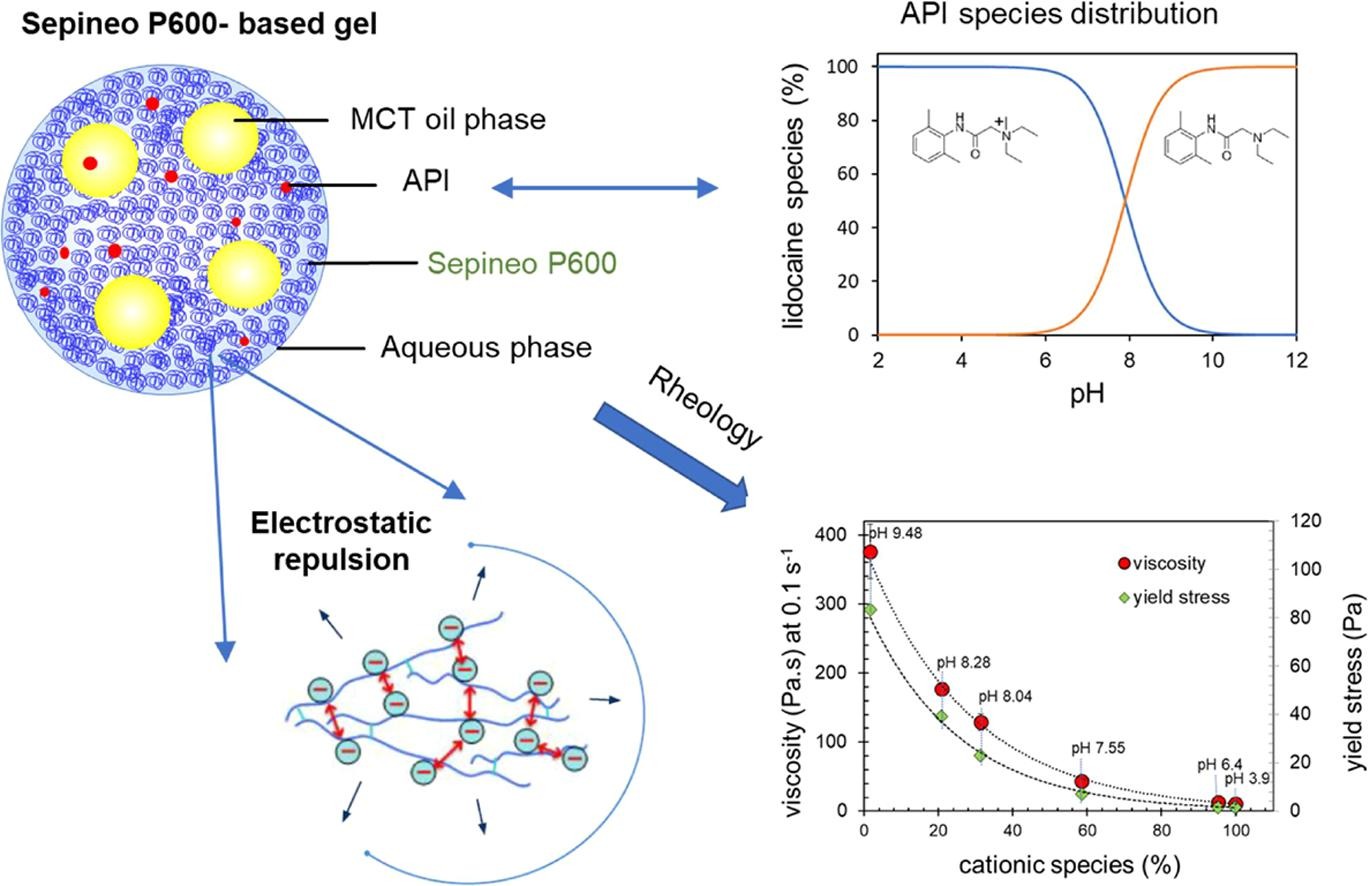API-polymer interactions in Sepineo P600 based topical gel formulation – impact on rheology

In the present study, topical gel and emulsion gel were formulated using Acrylamide/ Sodium Acryloyldimethyl taurate copolymer (Sepineo P600) as a gelling agent, and their rheological attributes and physical stability were evaluated upon incorporation of API. Lidocaine, a free base drug (pKa 7.92) was used as a model drug in all formulations. Medium- chain Triglycerides (MCT) was used as a dispersed phase to prepare the emulgel. Results show that the rheological properties of both gel and emulgel such as viscosity, elastic moduli and yield stress were significantly influenced by the pH of the topical formulations and API concentration. A lower pH (pH < pKa) leads to the increase in number of cationic species of lidocaine, which results in the weakening of the structure of the gel matrix by charge screening of polymer-polymer repulsions. Interactions between API and polymer chains through electrostatic attraction may play a major role in altering the rheology, which could potentially impact the physical stability against phase separation of the internal phase in emulsion gel samples. This study provides valuable insights into rheological behaviors of Sepineo P600 gel and emulgel which can be modified or tuned though the interplay of the API properties and critical formulation parameters such as pH. The tunable rheological properties with simpler manufacturing process make Sepineo P600 gel and emulsion gel very suitable systems for use in semisolid topical formulations.
About this article: Abu Zayed Md Badruddoza, Thean Yeoh, Jaymin C. Shah, API-polymer interactions in Sepineo P600 based topical gel formulation- impact on rheology, International Journal of Pharmaceutics, Volume 621, 2022, 121824, ISSN 0378-5173, https://doi.org/10.1016/j.ijpharm.2022.121824. (https://www.sciencedirect.com/science/article/pii/S0378517322003799)

